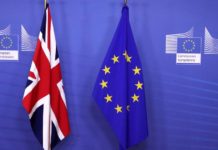Millions of eggs removed from European shelves over toxicity fears
Daniel Boffey in Brussels
Recalls in Germany, Netherlands and Belgium and criminal inquiry launched as tests show high levels of insecticide fipronil.
Millions of eggs are being recalled from shops and warehouses in Germany and the Netherlands and being blocked from sale in Belgium after some were found to contain high levels of a toxic insecticide banned from use in the production of food for human consumption.
About 180 Dutch farms have been temporarily shut down and a criminal investigation has been launched as authorities seek to establish the scale of the problem.
A European commission spokeswoman, Anna-Kaisa Itkonen, told reporters in Brussels: “The eggs are blocked. The contaminated eggs have been traced and withdrawn from the market and the situation is under control.”
Tests of chicken droppings, blood and eggs showed high levels of the insecticide fipronil, a common ingredient in veterinary products for getting rid of fleas, lice and ticks, but banned from being used to treat animals destined for human consumption.
According to the World Health Organisation, the highly toxic substance can damage the liver, thyroid glands and kidneys if ingested in large amounts over time.
Belgian prosecutors are said to be examining the client list of two companies in Flanders specialising in the production and supply of anti-lice agents to Dutch and Belgian farms, among others. It is feared the illegal substance was mixed with an insecticide used legally in the keeping of chickens to improve its effectiveness.
The Dutch newspaper Trouw suggested one of the companies may have had clients in the UK, France and Poland, although there is no suggestion so far that contaminated eggs are being sold in those countries.
The Dutch daily newspaper de Volkskrant reported that the illegal mix had been used on farms in the Netherlands for more than a year. The Dutch food and product safety board, the NVWA, told the newspaper it was unclear whether contaminated eggs had been sold to customers over that period. “We have no way of checking because the eggs have been eaten,” a spokesman said.
On Monday, the NVWA warned consumers that one batch of eggs “had such elevated levels of fipronil that their consumption would present a serious public health risk”. They advised that eggs from at least 27 other farms should not be eaten by children.
The extent of the scandal has since grown. “We are still estimating the number of farms which have been affected, and the analysis of 600 samples is still ongoing,” a spokesman for the NVWA said.
On Thursday, the Netherlands’ two largest supermarket groups, as well as the German supermarket group REWE, said they were removing some eggs from their shelves. “We want to give our clients total transparency,” the German company said in a statement.
Customers of the German chain who had already bought Dutch eggs have been told they can return them and be reimbursed. Lidl and Aldi have removed some Dutch eggs from their shelves.
Around a million eggs destined for Germany were recalled from the border with the Netherlands this week.
The German agriculture minister, Christian Schmidt, called a “crisis teleconference” with his counterparts in German states where the insecticide had been detected.
It has been reported that 2.9m eggs from companies believed to have used the fipronil anti-lice agent were delivered to Germany before 22 July, when exports were blocked, although many of them remained in packing stations.
Belgian media, citing the Flemish organisation that represents chicken and rabbit farmers, said several dozen Belgian producers had had their products blocked because of ongoing inspections.
The president of the Dutch poultry producers’ union, Hennie de Haan, warned against an overreaction. “If other retailers follow the example of REWE, then the disaster cannot be overlooked”, she said. “If this is temporary, it is still possible to catch up, but if it takes longer then the entire Dutch sector, including traders, is bankrupt. You do not just find a market for 4.5bn eggs a year.”
The Netherlands has almost 1,000 lay hen factory farms producing 11bn eggs a year, of which more than half are exported, mainly to Germany.
The Dutch food and product safety board has been criticised its handling of the scandal. At first officials said there was no danger to human health, before issuing a warning about certain batches of eggs. Its deputy director was subsequently reported as saying that consumers should avoid eggs altogether until tests for a banned pesticide had been completed.
The board expects to complete tests on eggs from 180 farms which used the contaminated pesticide by the end of the week.










